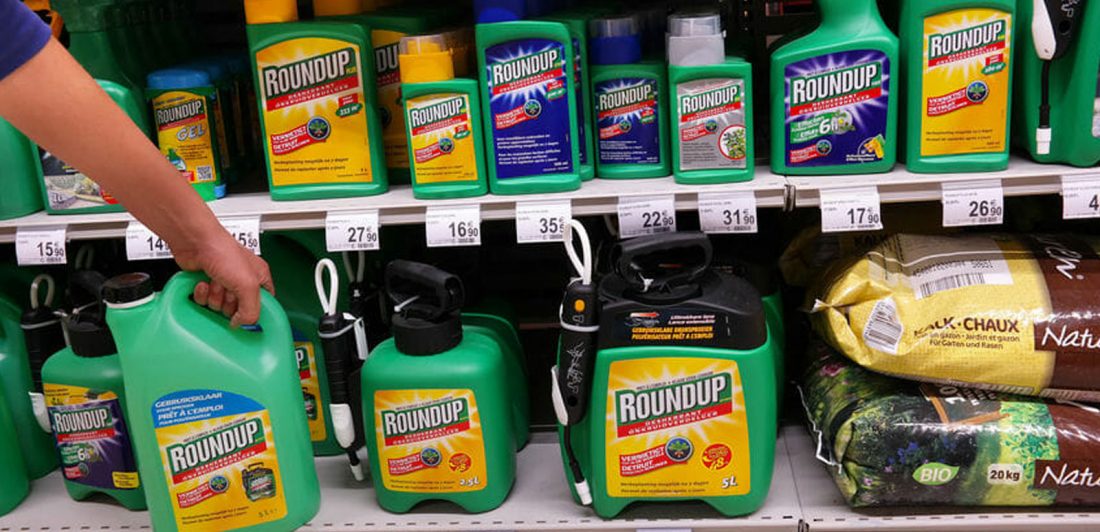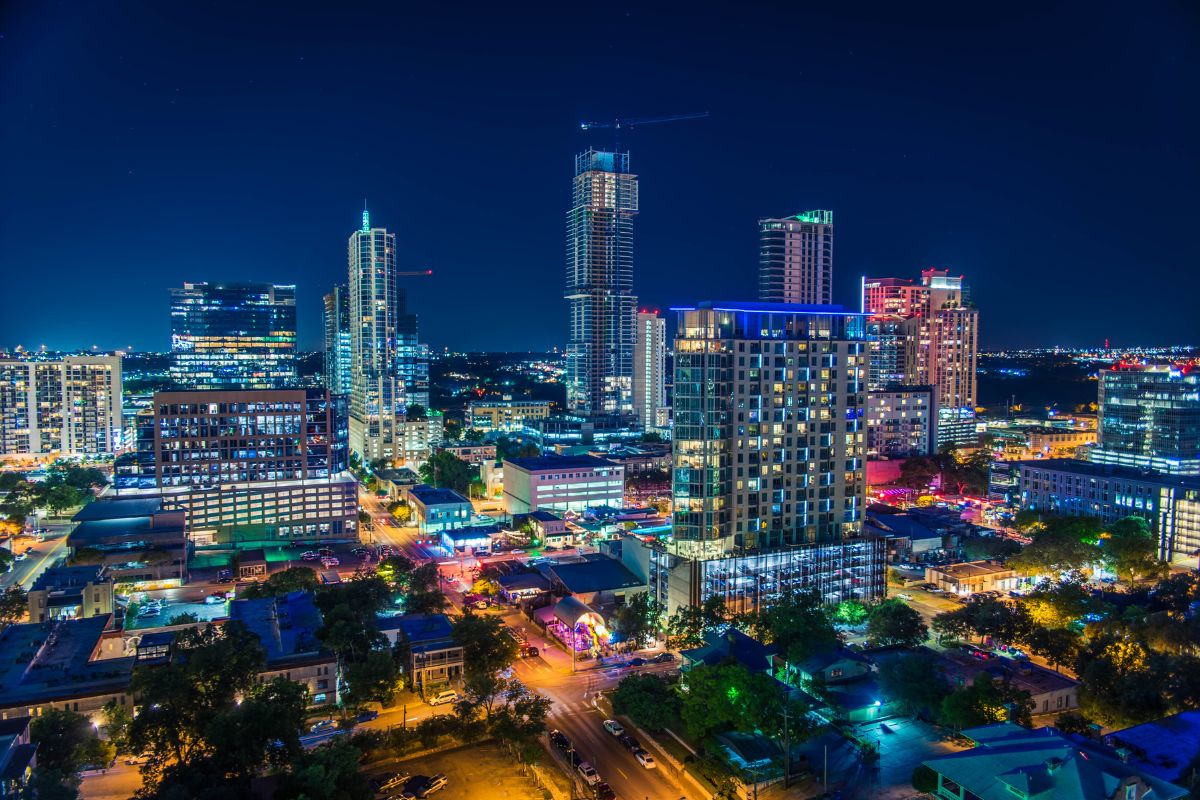Roundup has been under a microscope since 2015 when the International Agency for Research on Cancer (IARC) declared Roundup’s active ingredient glyphosate a possible human carcinogen. Since then, Roundup manufacturer Monsanto (purchased by Bayer) has been battling thousands of lawsuits alleging that the product caused non-Hodgkin’s lymphoma. Unfortunately for the company, a growing number of countries, states and cities have been restricting or outright banning Roundup and the use of glyphosate.
Glyphosate is being banned because of its potential link to cancer in humans, as well as potentially causing the death of important insects, such as bees. Biologists have sounded the alarm over the serious decline in insect populations that affect species diversity. In addition, scientists warn that these glyphosate and other similar products damage ecosystems by disrupting the natural food chains and plant pollination.
The United States’ Position on Glyphosate
Every state has a change.org petition requesting the respective state governors to ban glyphosate. The United States has been slow to adopt the position of the World Health Organization. In fact, the Environmental Protection Agency holds the same position as Bayer-Monsanto. The EPA has repeatedly stated the glyphosate is safe, but it hasn't always held that position. While the federal government is slow to move on accepting the science around glyphosate, several municipalities in the United States have restricted or banned glyphosate.
Despite the federal government’s lack of urgency, private citizens have taken up the fight against Bayer-Monsanto to hold them accountable. Thousands of lawsuits have been filed against the company from people who use Roundup in at work or on personal yard maintenance who have since developed Non-Hodgkin’s Lymphoma.
Where is glyphosate banned in the U.S.?
Every year, the United States uses more than 1.8 million tons of glyphosate. The weed-killer doesn’t just kill weeds. Roundup is found in about 90% of food products tested by the U.S. government—including honey. There are at least 150 cities in the nation that have organics first pesticide policies. While national agencies have been slow to adopt a position that Roundup and its active ingredient are carcinogenic, municipalities are leading the charge by banning or restricting the use of the chemical.
Alaska
In 2010, The Alaska Supreme Court issued a restraining order halting the use of weed-killing herbicides on railroad tracks. The state of Alaska is one of seven states that allows local jurisdictions to make their own pesticide policies.
- Anchorage, Alaska has a city ordinance requiring a pesticide-free program on public parks, lands and other city properties. The city's ordinance strengthens important public health protections including children's health, water quality and environmental protections from toxic pesticides.
- Skagway has a policy that restricts the local use of toxic pesticides on both public and private property.
Arizona
Advocacy groups in Arizona are pressuring the state to ban certain pesticides because of their negative effects on bee populations. In 2018, Tuscon became the first city in Arizona that requires an organics-first weed control on city property.
California
California has led the charge in holding Monsanto accountable for Roundup’s carcinogenicity. In fact, as early as 2017 the state added glyphosate to its list of carcinogens. In March 2019, Los Angeles County issued a moratorium on Monsanto’s Roundup. The County Board of Supervisors cited a need for more research into glyphosate’s health effects.
The state has a growing number of cities and counties banning or restricting glyphosate. According to Mercury News, the following agencies in California have discontinued or restricted the use of glyphosate:
- Benicia and Benicia Unified Schoool District
- Burbank and Burbank Unified School District
- Contra Costa County
- Encinitas
- Davis
- Greenfield
- Irvine
- Lodi
- Long Beach
- Los Angeles County
- Marin County
- Mount Diablo Unified School District
- Napa
- Novato
- Oakland
- Orange county
- Oxnard School District
- San Francisco (As of November 2020, the city has begun relying on Roundup much less because of cancer concerns.)
- San Lorenzo Valley Water District
- Santa Rosa
- Sonoma
- Thousand Oaks
- University of California
- Watsonville
- Woodland Joint Unified School District
This is not an exhaustive list of all the locations and agencies that have made moves to ban glyphosate use in California.
Colorado
Certain weeds are legal all over Colorado, but glyphosate-based weed killers are not. In Colorado, Roundup is banned in the following cities:
- Boulder only uses Roundup in limited circumstances. In fact, Roundup has been restricted or banned in all city-owned public parks, schools, property, open spaces for the last nine years.
- Durango in 2013 initiated a partial ban on the substance.
Connecticut
Connecticut as a state has instituted Public Act 09-56 to eliminate the use of pesticides and herbicides on daycare facilities' grounds and K-8 schools. And while Connecticut may not be able to compete with California in landmass, when it comes to the number of cities that have banned or restricted glyphosate use Connecticut is at the forefront. Municipalities with glyphosate ordinances include:
- Branford
- Cheshire
- Essex
- Greenwich
- Manchester
- Plainville
- Roxbury
- Watertown
- Woodbridge
Florida
Over concerns that harmful pesticides were killing the local plant life, in March 2019 the city of Miami passed a resolution banning the use of glyphosate on city property. The ban went to effect immediately after its passage by city commissioners. The city typically uses almost 5,000 galls of glyphosate products every year. This ban will significantly reduce resident exposure. On a state level, Florida put a stop to herbicide use while it investigated its effects on wildlife. Other Florida cities that banned or restricted Roundup include:
- Indian River County
- Fort Myers
- Key West
- Martin County
- Miami Beach
- North Miami
- Port St. Lucie
- Satellite Beach
- Sebastian
- Stuart
- Vero Beach
Illinois
Chicago recognized the damage that Roundup causes to DNA as early as 2015 and stopped spraying Roundup in public areas. Other Illinois cities with glyphosate bans or restrictions include:
- Evanston – Glyphosate is on the Proposition 65 list meaning it should be banned on city property. However, the city was mired in controversy in 2016 when it defended its use of the weed killer on city property.
- Franklin Park
- Naperville
- Urbana
Iowa
Iowa may be known for its corn crops, but that doesn’t mean officials aren’t concerned about the carcinogenicity of glyphosate.
- Dubuque
- Story County, Iowa
Kansas
In a 2016 survey, Kansas came fourth in states that used the most glyphosate in America. However, in an effort to curb their reliance on pesticides, both Wichita and Lawrence have programs to eliminate or reduce pesticide use.
Maine
There are 29 cities in Maine that have some sort of city ordinance addressing the use of pesticides.
Maryland
In Montgomery County, the use of pesticides for cosmetic uses on private lawns is banned. Takoma Park took it a step further and restricted cosmetic pesticides for lawn care on both public and private property. Other areas in Maryland that have enforced a ban are as follows:
- Greenbelt
- Howard County
- Hyattsville
Massachusetts
Massachusetts has been making strides towards eliminating toxic pesticide usage. At the state level, Massachusetts introduced the Children and Families Protection Act which aims to “promote the implementation of Integrated Pest Management Techniques.” In addition, the Boston public school district has an unofficial ban on glyphosate. Massachusetts municipalities that have some level of a pesticide reduction plan are:
- Andover
- Chatham
- Dennis
- Eastham
- Falmouth
- Marblehead
- Newton
- Warwick
- Wellesley
- Wellfleet
Minnesota
In 2016, Minneapolis made the move toward eliminating all glyphosate-based products in neighborhood parks. However, on January 1, 2019, a Minneapolis Park Board's Operations & Environment Committee unanimous vote went into effect that bans glyphosate in all Minneapolis parks—including regional parks and golf courses. Rochester has also stopped using pesticides in their city parks. Additionally, there are several other Minnesota townships with policies to reduce pesticides and herbicides.
Nevada
Reno, Nevada initiated a pilot program to go pesticide-free in 12 city parks.
New Hampshire
In February 2019, state legislators in New Hampshire proposed a bill that would have prevented the use of bee-killing pesticides. However, the bill was tabled for more research and was supposed to be addressed in 2020. Currently, Dover and Portsmouth have eliminated the use of toxic pesticides.
New Mexico
Las Cruces has banned Roundup and its active ingredient glyphosate on city property in a 5-1 vote by the city council. Further, the city voted to create a committee to give the city advice on pest management. Other New Mexico cities and counties that have limited or banned the use of Roundup include:
- Bernalillo County abandoned the use of Roundup in April 2020.
- Santa Fe has a local ordinance requiring the use of the least toxic pesticide.
- Taos County began considering a pesticide ban in 2016.
New Jersey
The state of New Jersey has statewide legislation that encourages pest companies to eliminate or drastically reduce the use of pesticides.
New York
While New York City has been reducing the amount of glyphosate used, it has also been accused of using glyphosate in higher concentrations and more frequently in Black communities. While a bill was introduced to ban the use of glyphosate by all city agencies, it has yet to come to a vote. At the state level, The New York Department of Park and Recreation is aiming to eliminate and reduce pesticides and herbicides. In addition, a bill has been introduced to the New York State Senate that would ban the purchase and distribution of all glyphosate products.
- New Paltz
- Rockland
- Westchester
North Carolina
Believe it or not, since 1999 North Carolina city Carrboro has banned the use of glyphosate in schools, public parks and town buildings or properties.
Ohio
In Cuyahoga County, home of Cleveland, county-owned land cannot be sprayed with pesticides. Additionally, South Euclid, an eastern suburb of Cleveland does not allow toxic pesticides on public grounds.
Oregon
For more than 30 years, Portland, Oregon has restricted the use of Roundup to emergency use only. In fact, the city banned Glyphosate on all city-owned property. Eugene and Talent, Oregon, followed suit and banned the use of toxic pesticides.
Texas
Denton is the home of two Texas universities and sits about 30 minutes north of Dallas. The city ended the use of glyphosate herbicide and is piloting an integrated pest management program that favors organic methods for city-owned parks.
The state capital, Austin, has also prohibited spraying glyphosate on city lands.
Vermont
Several bills have been introduced to the Vermont state legislature to restrict or ban glyphosate.
Virginia
The use of glyphosate products is restricted in Charlottesville, Virginia.
Washington
Many communities in Washington have passed ordinances to prevent or reduce the use of toxic pesticides.
- King County
- Kitsap County
- Ocean Shores
- Olympia
- Seattle
- Spokane
- Thurston County
What states are slow to move on Roundup restrictions or bans?
There are some states that are following the lead of the EPA—which says that “glyphosate is unlikely to be a human carcinogen.”
For example, Montana's economy relies heavily on agriculture. State law prohibits individual municipalities from institute local bans. In June 2019, a group called environment Montana asked the state governor to ban bee-killing pesticides—which includes glyphosate. The group hopes that the state will relax its laws and allow cities to make their own laws in regard to pesticides. However, to date, there has been no statewide legislation on reducing or restricting the use of glyphosate.
What countries are banning Roundup?
Since the International Agency on Research on Cancer found glyphosate to be probably carcinogenic in 2015, several countries have banned or restricted glyphosate use. According to the European Commission, glyphosate is currently approved for use in the European Union until Dec. 15, 2022. However, Austria became the first EU country to ban glyphosate in July 2019. Germany announced in September that it will begin phasing out the controversial weedkiller by 2023. Other countries that have some sort of legislation around glyphosate include:
- Malawi
- Thailand
- Vietnam (Vietnam's move to ban glyphosate contaminated imports drew criticism from U.S. Secretary of Agriculture Sonny Perdue.)
- Sri Lanka
- Oman
- Kuwait
- United Arab Emirates
- Bahrain
- Qatar
- Saudi Arabia
- St. Vincent and the Grenadines
- Bermuda
- Austria
- Belgium
- Czech Republic
- Denmark
- France
- Italy
- The Netherlands
Germany moves to ban Glyphosate by 2024
Germany has become the latest country to implement glyphosate legislation. According to a Reuters report, German farmers will need to gradually reduce their use of glyphosate and completely stop using it by 2024. The draft legislation passed the country's cabinet on Wednesday, February 10, 2021.
While the United States has been slow to accept the science behind glyphosates' link to carcinogens, there is a growing movement among governments worldwide to protect the health of their citizens and the environment. Bayer has agreed to settle nearly 100,000 U.S. lawsuits for $10.9 billion, while still denying claims that Roundup caused cancer.
The Carlson Law Firm can help
Banning Roundup and glyphosate products is a start to ensuring the health of the public. However, for many people, their lives have already been turned upside because of this dangerous chemical. The Carlson Law Firm is currently accepting non-Hodgkin’s lymphoma clients from all 50 states. If you or a loved one used Roundup for work or personal yard maintenance, contact us today. The science that this dangerous chemical is significantly affecting health is on your side. We can help you hold Bayer-Monsanto accountable for its failure to warn you that glyphosate is carcinogenic.
In addition, our firm has the resources to take on a major corporation like Bayer-Monsanto. A Roundup lawyer from The Carlson Law Firm will fight tirelessly for the justice you and your family deserve. If you received a non-Hodgkin’s lymphoma diagnosis after using Roundup, call The Carlson Law Firm at 800-359-5690.




